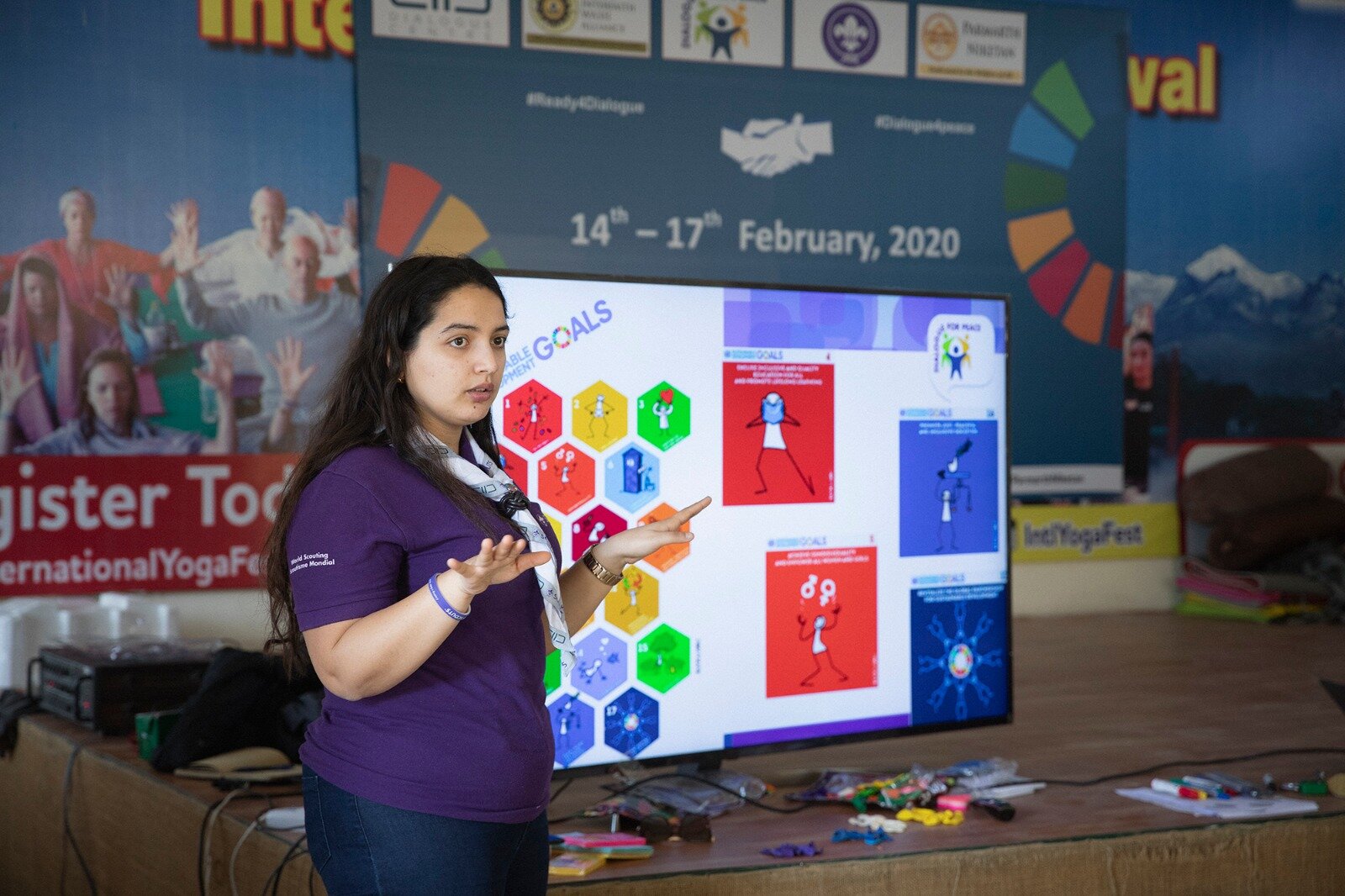Soon, with the help of these trainers and facilitators, scores of Scouts will be able to earn the Personal Dialogue green badges, with a systematic roll-out of “Scouts in Dialogue” on the national level planned to sustain the programme into the future. To get involved with DfP training, a Scout must contact their National Scout Organization (NSO) to begin.
What follows are stories from three different accredited dialogue facilitators and trainers — from Argentina, Tunisia, and Romania — that speak to the global impact of the programme. Each story highlights how the programme equips changemakers with the tools needed to build a culture of dialogue, contribute to reconciliation efforts, and dispel stereotypes in countries across the world
Building a culture of peace in Buenos Aires
Conte Roberts joined the Scouts de Argentina, a member of the WOSM, at the age of nine. She appreciated the social opportunities, but enjoyed the education offered even more. In particular, she delighted in the opportunity for Argentines like herself to learn more about the world.
That is why she jumped at the chance to partake in a DfP training. In Houston and then at the World Scout Youth Forum in Azerbaijan in 2017 and in a follow-up training event in Panama in 2019, Conte Roberts interacted with Scouts from places as diverse as Sudan and Sweden, learning how to talk across cultural and religious differences in honest, respectful ways. Along the way, she earned a green “Personal Dialogue Badge” by not only taking part, but actively demonstrating her interest in, and knowledge of, dialogue in these activities.
Now, she serves as an ambassador for dialogue in Argentina and is working toward earning a “Dialogue Trainer Accreditation,” exhibiting the essential characteristics of dialogue: active listening, compassion, and openness to learn and to be changed; but also the skills to help others in their process of incorporating dialogue in their lives.
Not religious herself, Conte Roberts said dialogue creates a “safe space” for religious minorities to share openly about their experiences in Argentine society. This, she said, helps foster peace and justice in society as a whole.
“Here in Argentina, in the past, religion was a dangerous topic for us,” she recalls. “Now there are opportunities to talk more openly, and dialogue will help us do that.”
She hopes to launch a dialogue training course in her home country because “building a culture of peace is what Scouts do,” she said, “and the DfP Programme is a great way to make that happen.”
Tunis: “A sense of belonging to a wide community of peacebuilders”
Amal Ridene, 22, is a talented musician and high-powered graduate of the Tunis Business School, recently recruited as an analyst at a private equity firm in Tunis, Tunisia.




